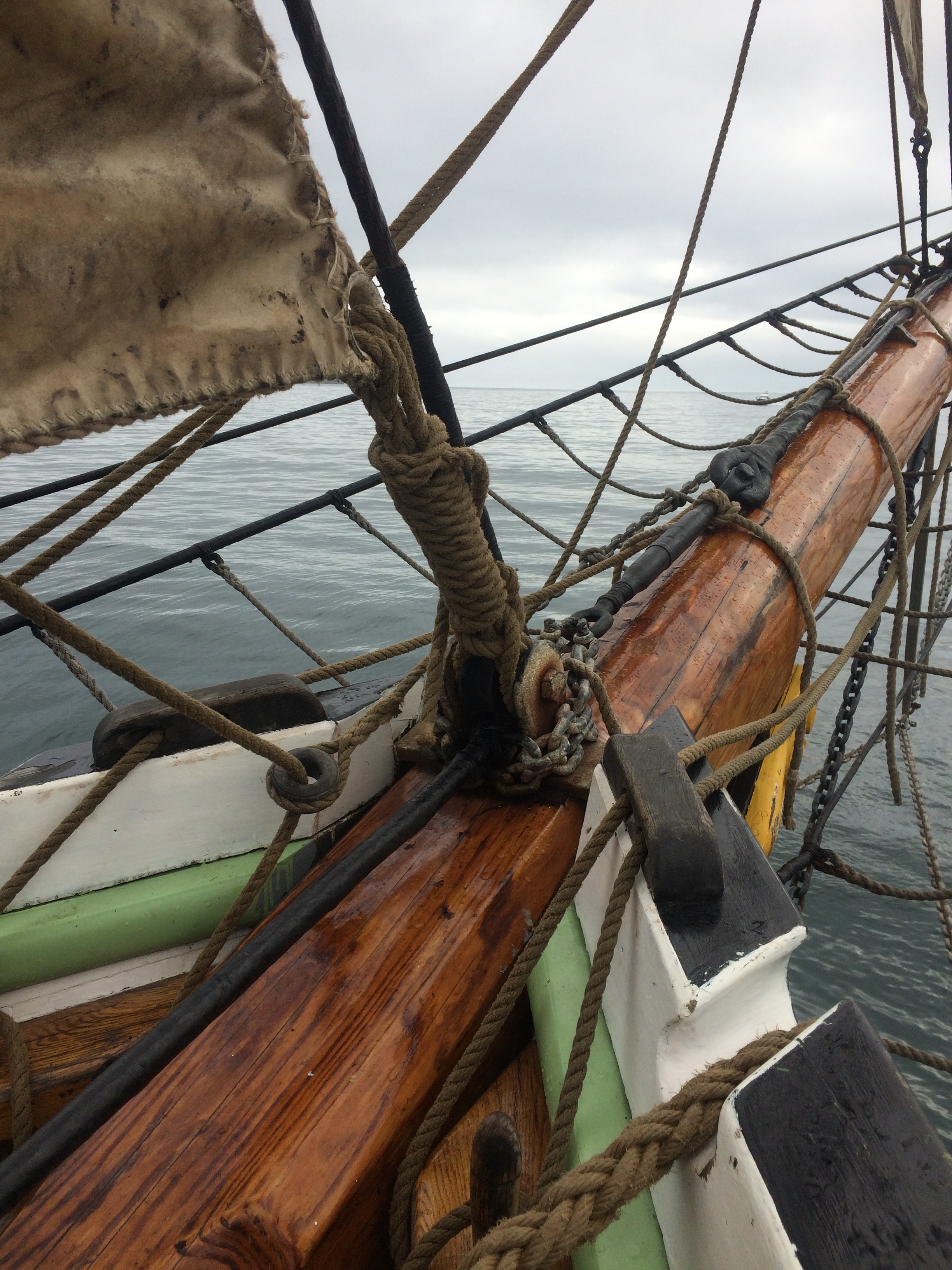I've started building a model yacht for Joe and rather than do the sensible thing and buy plans I decided to scale down and modify the hull shape I used for Gato Nego my rowing skiff. With a beam to length ration of 4:1 the hull should be easily driven, I also flattened out the stern section to hopefully give better form stability and the possibility of planning. All of which sounds about right and I’m no expert, but at least with a model you can experiment without breaking the bank.
The next challenge is to position the rig, keel and rudder, I decided that I needed to draw up plans, so having already built the hull pretty much by eye I needed to get an accurate drawing of the underwater profile. Using the home made gantry (I knew it would come in useful for something), a spilling board and a stick I was able to capture the hull profile with reasonable accuracy.

Next step is to draw it up with the sail plan, keel and rudder, then calculate the Centre of Effort of the sails and the Centre of Lateral Resistance for the underwater section. Most of the design guidance suggests a “lead” CoE over CLR of some 10% -12% of water line length. Whether that works at model scale I’m not sure (some more research needed), getting it right is important if the boat is to sail well.
To complicate matters the keel and rudder when I decided where to put them and how big, will also change the underwater shape and CLR, which will change the lead and so on.
Interesting stuff this yacht design.
 Perhaps its down to the UK economy or maybe some other reason.
Perhaps its down to the UK economy or maybe some other reason.












 Egret's are still common on the river, this was wading in the peaceful shallows, close by the shore.
Egret's are still common on the river, this was wading in the peaceful shallows, close by the shore. You could imagine this handsome motor yacht Bounty, gliding along the river, faint 30's jazz music drifting across the still water in the rippled wake as she steams away.
You could imagine this handsome motor yacht Bounty, gliding along the river, faint 30's jazz music drifting across the still water in the rippled wake as she steams away. Sadly the reality is, that you don't have to look very far to see the effects of development and crowding which have characterised the last seven decades.
Sadly the reality is, that you don't have to look very far to see the effects of development and crowding which have characterised the last seven decades. But it's still a great place to live!
But it's still a great place to live!


































